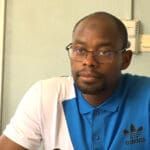Final year engineering students have developed innovative solutions in the medical field, confirming the pioneering position of their establishment.
Students from the Polytechnic University of West Africa (UPOA) have once again demonstrated their expertise in medical engineering. During a presentation organized on Friday May 3, 2024, several promising prototypes and concepts were revealed by future license 3 graduates.
Among the innovations, a first project consisted of a scale allowing the simultaneous measurement of the weight and height of an infant, two parameters previously requiring separate devices. “ It is an innovative tool that saves time and calculates body mass index faster. Our objective is now to promote it and also show that if students are put in good conditions, they can achieve great things. », Supported Abdoulkarim Ibrahima, one of the project leaders.


The “EBC Kit” project by Noguèye Diallo and his comrades is a monitoring kit for babies. Equipped with several features, it is dedicated to young parents and maternity health professionals. “ Thanks to the multiple sensors integrated into this kit, we can measure several pieces of information in real time, such as the baby’s state of health, the temperature of the room where he is, as well as his size. In addition, the lullaby equipped with LED light effects helps relax the baby. », explained Miss Diallo.


Another team presented “Baby Health Tracker”, a scale measuring the baby’s weight, height, Body Mass Index (BMI) and heart rate. “ It will save doctors time and allow parents to know the state of health of their baby by following several constants which are really very essential for the well-being of the infant. », said Maty Mouhamed Djité, member of Baby Health Tracker.


Finally, another team presented the MCP 2024 for “Portable Cardiac Measurement 2024”. It is an electrocardiogram enhanced with a Bluetooth sensor. “ This feature allows the patient to get the results in real time on their mobile phone. We are considering adding a temperature sensor to better care for the patient. », explained Aimery MINKO, one of its designers.


They integrated Matlab software into their invention to allow nursing staff to interpret the data more easily. Likewise, they developed an interface helping to take the interpretation further by providing heart rate and many other relevant information.
“ We train our students to have the capacity to carry out these kinds of innovations in Africa, because the raw materials from which the semiconductors are made, and which they used for these devices, come from our continent. We challenge them to produce them locally, which would reduce the cost of these devices and make them accessible to everyone. said Latir Dione, UPOA professor of electrical engineering.


The Secretary General of UPOA, Ms. Sall, underlined the desire to train biomedical engineers “ capable of providing innovative, affordable solutions adapted to our realities.»
According to Ms. Sall, in Africa, biomedical engineers focus more on the maintenance of hospital equipment than on design.
“ To compensate for this, we are implementing numerous design activities allowing our students to provide innovative and affordable solutions, but above all adapted to our African realities. Today, our positioning is focused on biomedical engineering, an extremely important field in our countries. It is almost a public health tool since investments in our hospital structures will impact costs and planning. We are pioneers in this field and the only school to train biomedical engineers, because this seemed to us to be an important problem for the country. “, she indicated.


Through these various achievements, the UPOA seeks to “ demystify the idea that we would be incapable of designing” by pushing students to develop tools that meet specific needs”noted Ali Traoré, head of biomedical engineering training at UPOA.
These ambitious projects demonstrate the excellence of the training provided at the Polytechnic University of Dakar in the fields of biomedical engineering. This higher education establishment has positioned itself in recent years as a key player and pioneer in this discipline in Senegal and West Africa.
ARD/ac/APA













